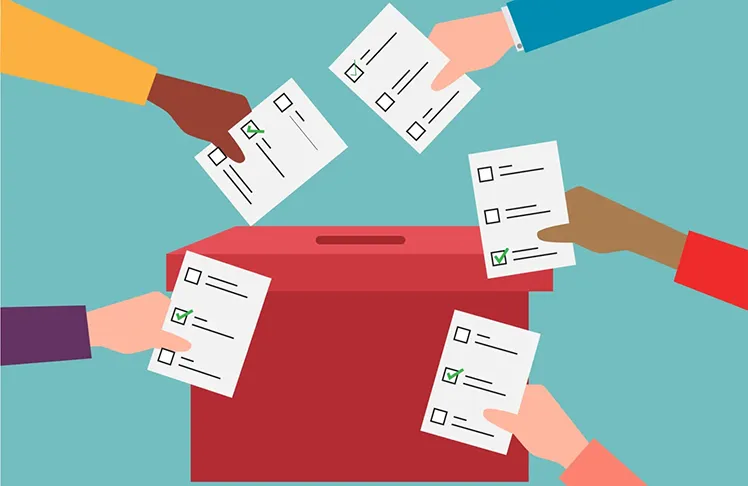

This article is one of a series of articles produced by Word in Black through support provided by the Chan Zuckerberg Initiative. Word In Black is a collaborative of 10 Black-owned media outlets across the country.
Donald Trump, champion of eliminating the Department of Education and cutting K-12 funding, is returning to the White House. But last night’s presidential election wasn’t the only thing on the ballot that could impact K-12 schools and the educational futures of Black students.
State-level decisions about school choice, standardized testing, school boards, and school funding were also put before voters.
School Choice
School choice, a controversial policy that allows parents to use public tax dollars to send their child to charter, private, or religious schools, was on the ballot in several states. In Colorado, Amendment 80, which would have made school choice a constitutional right, is on pace to be rejected by voters. Similarly, Kentucky’s Amendment 2, which aimed to amend the state constitution to allow public funding for private education, did not pass. However, Nebraska’s Referendum 435, aiming to repeal a law providing public funds for private school tuition, was approved and will likely help preserve resources for Black students who predominantly attend public schools.
Standardized Testing
Making racially biased high-stakes standardized tests—like the SAT — optional for college admissions has long been a hot topic. And now, the test-optional movement has a victory in Massachusetts. Voters approved Question 2, which eliminates the requirement that students pass a standardized exam to graduate high school. This change is expected to increase graduation rates, including for Black students.
School Board Elections
School boards decide everything from how resources are allocated to whether inclusive and culturally relevant curricula are taught — which means many school board races nationwide have become heated partisan contests. Florida’s Amendment 1, which would have required school board candidates to list their political party affiliation, did not pass. This will maintain nonpartisan school board elections and allow parties to focus on educational issues rather than political agendas.
School Funding
Five states — California, Colorado, Missouri, New Mexico, and Utah — had ballot measures to raise or increase school funding. More money for public schools can help with a range of issues: reducing class sizes, upgrading facilities, expanding access to early childhood education, providing mental health and essential literacy support, and paying for instructional materials and aides — all of which can help boost Black student achievement.
- California Proposition 2, which proposed to provide $10 billion in bonds for public education facility upgrades, is likely to pass.
- Colorado Proposition KK passed — imposing a 6.5% tax on gun and ammunition sales to fund education and mental health programs.
- Missouri Amendment 5, which asked voters to authorize a casino on the Osage River, and would have directed revenue from a new gambling license to fund early childhood literacy programs, did not pass.
- New Mexico Bond Question 3 passed, which will provide $19.3 million for public and academic libraries.
- Utah Amendment A, which asked voters to maintain the constitutional requirement that income tax revenue support public education, was voided after a judge ruled that certain prerequisites were not met for the amendment to be on the ballot.
- Utah Amendment B was passed to increase the annual distribution limit from the State School Fund for public education from 4% to 5%.















